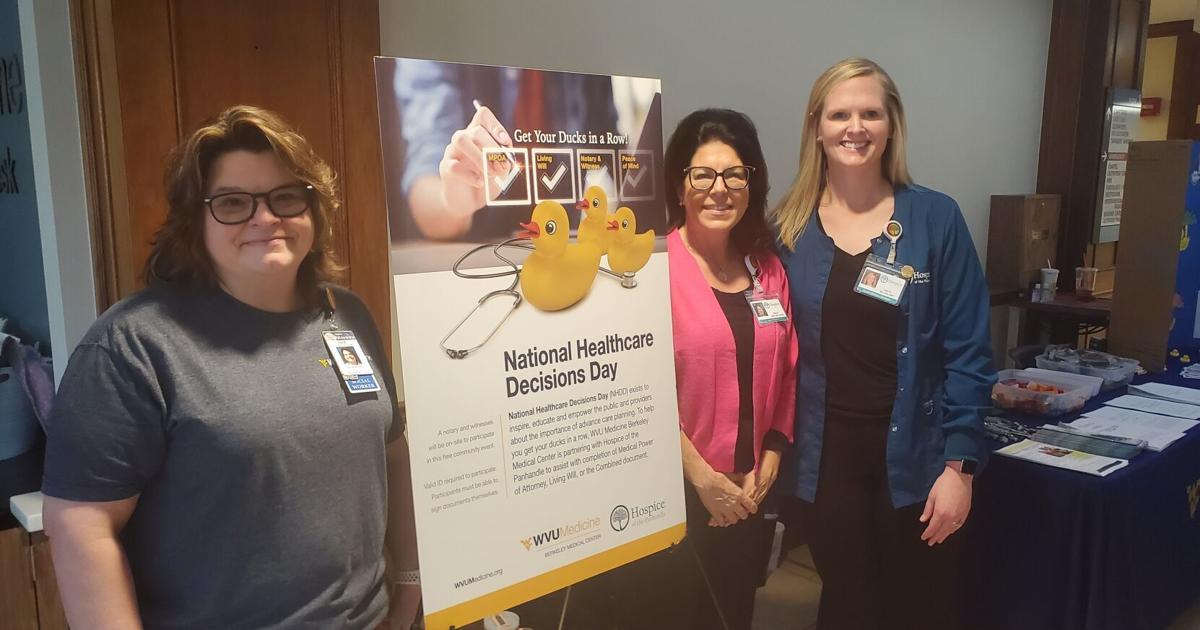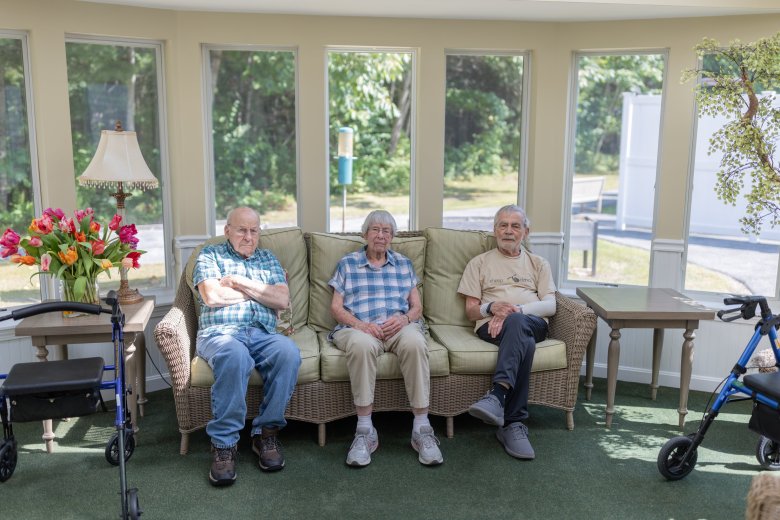Health care workers aid community members with end-of-life care directives | Journal-news

MARTINSBURG — Health care workers from Berkeley Medical Center and Hospice of the Panhandle came together on Tuesday to help members of the community learn and assemble various advanced directives concerning end-of-life care.
According to a study by the University of Chicago, only 22% of U.S. adults have completed any advanced directive for their end-of-life care. Tuesday’s event aimed to help boost that that number in the Eastern Panhandle.
As of 2 p.m. on Tuesday afternoon, more than 35 people had been through the program, completing paperwork for their medical power of attorney, living will or both for free.
“We have people of all ages doing this,” said Dixie Blevins-Bozenko, a social worker for Berkeley Medical Center, “We’ve had people come by that are in their 20s or 30s.”
Julie Sayre, social services manager for Hospice of the Panhandle, said completing the advanced care directives is important for people of all ages, since you never know what life will throw your way.
“Many people may look at it as though you need to be of a certain age, or I’m too young to need something like this, and that’s just not the case,” she said. “The reality is, we can’t foresee any of the events in our life at any age, (so) it’s good to have you stating who you want to represent you and your best interests for your medical needs if you can’t speak for yourself.”
One of the two documents provided by the event was medical power of attorney, which allows a person to choose someone else to make health care decisions for them if they are unable to make them on their own. In theory, it allows that representative to make decisions based on their values and wishes.
“It’s as simple as deciding who’s the most trusted person that you would like to make those decisions for you if needed,” Sayre said.
The medical power of attorney only goes into effect if a person is too sick to make decisions for themselves and is no longer in effect if they regain the ability to make decisions. A representative cannot override other written, expressed wishes, like those you’d make in a living will.
Similar to the power of attorney, a living will is a legal document that tells a doctor how a person wants to be treated if they are terminally ill and cannot make decisions for themselves. It focuses on what medical interventions would be used to prolong a person’s life.
Without the right paperwork, a physician will have to figure out who the appropriate person is to make one’s medical decisions if they can’t make their own. Having the right paperwork makes finding the right care easier for both patients and doctors.
With the success of Tuesday’s event, organizers like Nina O’Connor, medical social worker for Hospice of the Panhandle, said the event will continue in the future, becoming in annual event in conjunction with National Healthcare Decisions Day.
“I would anticipate this would grow year after year after year,” O’Connor said. “It’s something that doesn’t cost anybody anything. It’s an important document, and you can walk away with it in hand.”
link







